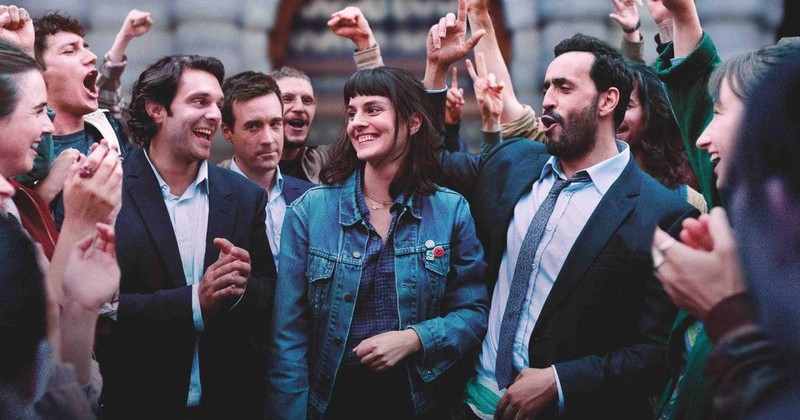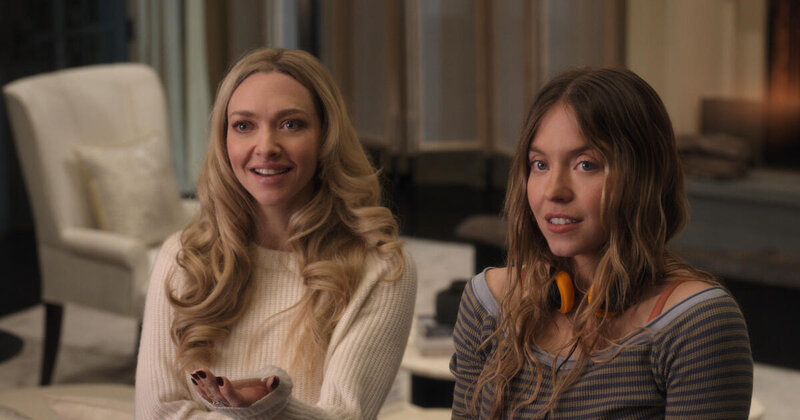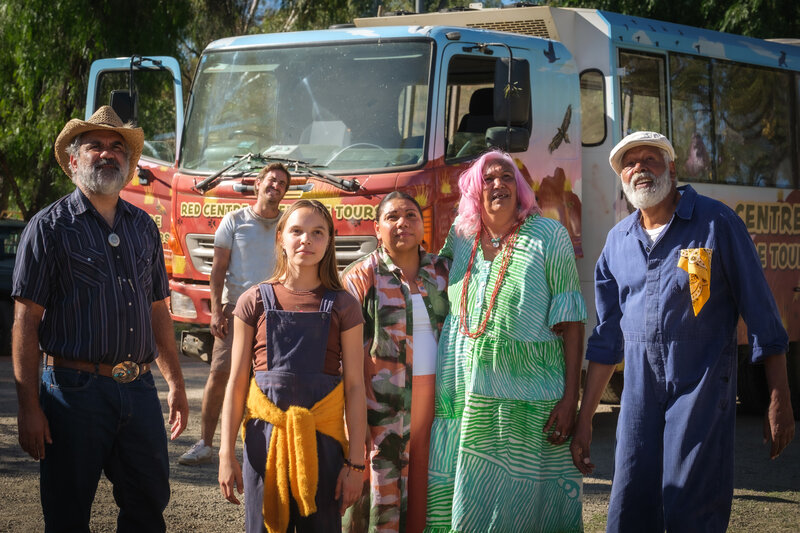The past few months have been a boom time if you’re into European – particularly French – cinema. And that trend continues with the engaging A Difficult Year. I mean, the idea of a comedy about anti-capitalist activism doesn’t sound like a winner, but writer-directors Olivier Nakache and Éric Toledano manage to pretty much keep it all on the rails.
Nakache and Toledano are best know for their 2011 smash hit The Intouchables, starring Omar Sy. Much like The Intouchables, A Difficult Year takes a serious issue – in this case, homelessness – and spins it into a relatable, even enjoyable, cinema experience. And while this isn’t perfect, the filmmakers and brilliant cast deliver more than enough to make it worth catching.

Albert (Pio Marmaï) works at Paris’ main airport. In fact, he lives there too, sleeping in departure lounges. He runs a crafty little sideline of re-selling confiscated goods. In that vein, he goes to a Black Friday sale to get a flat-screen TV cheap. His plans are initially frustrated by a group of activists blockading the store. But he eventually manages to secure it, and heads into the suburbs to on-sell it to Bruno (Jonathan Cohen). He arrives just as buyers are going through Bruno’s house, which is under foreclosure. Bruno pays for the TV, but then lets on that he’s taken a bunch of pills. When he collapses, the reluctant Albert somehow manages to help save him.
When Bruno and Albert meet again later, it turns out they have a lot in common; notably they’re both victims of crushing consumer debt. Albert is hoping to have his debt waived by the Bank of France with assistance from slightly dodgy debt counsellor Henri (Mathieu Amalric). Bruno offers to “buy” Albert a drink. But that actually involves going to a nearby meeting of an activist group (yes, the one that blockaded the store) where they have free beer and food. Although Albert is purely in it for the freebies, he finds himself oddly attracted to the group’s leader – who goes by the codename Cactus (Noémie Merlant). Albert soon discovers getting involved with the activists has some unexpected benefits for his black market activities. Soon he and Bruno are enmeshed into the group. Not everyone is happy about it though. Cactus’s lieutenant Quinoa (Grégoire Leprince-Ringuet) smells a rat.
The first half of A Difficult Year romps along with Albert and Bruno getting into all kinds of misadventures. Things take a darker turn in the second half. I was 100% with the film until the ending, which I think rather drops the ball. It’s almost as if, presented with all the possibilities, Nakache and Toledano opted for the easiest and (unfortunately) least interesting one. But that somewhat flat ending is a really minor quibble with a film that otherwise ticks a lot of boxes. The script slyly tackles thorny issues around wealth disparity, financial exploitation and environmental concerns. It also highlights the merits (and pitfalls) of radical activism. And it does so in a way that’s both empathetic and engaging.
I should add it’s very funny, despite the rather heavy themes. A sequence in which Albert and Bruno help to stage a protest at the Bank of France so they can access their personal files is hilarious. A lot of the jokes land, even in translation. And the opening scene is just brilliantly done.
Whatever script problems the film may have are shunted aside by some fantastic performances. Pio Marmaï (the Three Musketeers films) is disarmingly charming as the raffish Albert; and is perfectly paired with Jonathan Cohen as the more dour Bruno. The pair have a great comedic rapport, and both are completely convincing in their roles. Although his character isn’t treated quite so well by the script, Mathieu Amalric (The French Dispatch) imbues a geniality to Henri. And Grégoire Leprince-Ringuet adds an air of tension as the suspicious Quinoa. But Noémie Merlant (Tár) carries the whole film in another powerhouse performance as the charismatic Cactus.
While A Difficult Year has its flaws, it’s nonetheless a warm, funny and often insightful film. If you’re looking for something a little quirky and not exactly mainstream, this is a film worth seeking out.
David Edwards
Other reviews you might enjoy:

David Edwards is the former editor of The Blurb and a contributor on film and television





